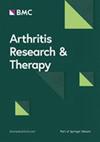CCL23 is a potential biomarker for antineutrophil cytoplasmic antibody–associated vasculitis
IF 4.6
2区 医学
Q1 Medicine
引用次数: 0
Abstract
The present cohort study aimed to evaluate the value of CCL23 in diagnosis, disease activity, and prognosis in patients with antineutrophil cytoplasmic antibody–associated vasculitis (AAV). CCL23 levels in serum samples from 317 patients with AAV and 83 healthy controls (HCs) were measured using a customized immune response kit. Patients with AAV had significantly elevated CL23 levels compared with HCs. CCL23 level was closely related to disease activity and was better than birmingham vasculitis activity score (BVAS) in distinguishing disease relapse from remission (area under curve: CCL23 = 0.942, BVAS = 0.84). Elevated CCL23 level was associated with poor prognosis within a 1 year follow-up period in patients with AAV (p = 0.0001). The ability of CCL23 to predict the poor prognosis of disease is better than that of five-factor score. Furthermore, elevated CCL23 levels were a risk factor for renal involvement (odds ratio = 1.722, p = 0.033), and were significantly related to serum creatinine (r = 0.381, p = 0.009) and eGFR (r = − 0.382, p = 0.01) at the time of diagnosis. High CCL23 level at diagnosis was associated with increased adverse outcomes during 1 year follow-up in patients with AAV with renal involvement (p = 0.0242). Elevated serum CCL23 level was closely related with disease activity and renal involvement in patients with AAV, can be a potential biomarker for diagnosis, and can predict prognosis in patients with AAV, especially adverse renal prognosis.CCL23是抗中性粒细胞细胞质抗体相关血管炎的潜在生物标志物
本队列研究旨在评估CCL23在抗中性粒细胞细胞质抗体相关血管炎(AAV)患者的诊断、疾病活动性和预后中的价值。使用定制的免疫反应试剂盒检测317例AAV患者和83例健康对照(hc)血清样本中的CCL23水平。与hcc患者相比,AAV患者的CL23水平显著升高。CCL23水平与疾病活动性密切相关,在区分疾病复发与缓解方面优于伯明翰血管炎活动性评分(BVAS)(曲线下面积:CCL23 = 0.942, BVAS = 0.84)。AAV患者1年随访期间CCL23水平升高与预后不良相关(p = 0.0001)。CCL23对疾病不良预后的预测能力优于五因素评分。此外,CCL23水平升高是肾脏受累的危险因素(优势比= 1.722,p = 0.033),并与诊断时的血清肌酐(r = 0.381, p = 0.009)和eGFR (r = - 0.382, p = 0.01)显著相关。诊断时CCL23水平高与肾受累的AAV患者1年随访期间不良结局增加相关(p = 0.0242)。血清CCL23水平升高与AAV患者的疾病活动性和肾脏受累密切相关,可作为潜在的诊断生物标志物,预测AAV患者的预后,尤其是肾脏不良预后。
本文章由计算机程序翻译,如有差异,请以英文原文为准。
求助全文
约1分钟内获得全文
求助全文
来源期刊

Arthritis Research & Therapy
RHEUMATOLOGY-
CiteScore
8.60
自引率
2.00%
发文量
261
审稿时长
14 weeks
期刊介绍:
Established in 1999, Arthritis Research and Therapy is an international, open access, peer-reviewed journal, publishing original articles in the area of musculoskeletal research and therapy as well as, reviews, commentaries and reports. A major focus of the journal is on the immunologic processes leading to inflammation, damage and repair as they relate to autoimmune rheumatic and musculoskeletal conditions, and which inform the translation of this knowledge into advances in clinical care. Original basic, translational and clinical research is considered for publication along with results of early and late phase therapeutic trials, especially as they pertain to the underpinning science that informs clinical observations in interventional studies.
 求助内容:
求助内容: 应助结果提醒方式:
应助结果提醒方式:


